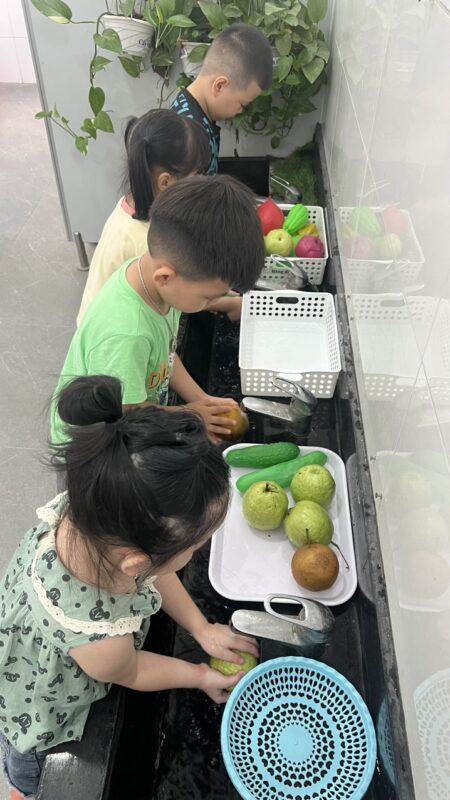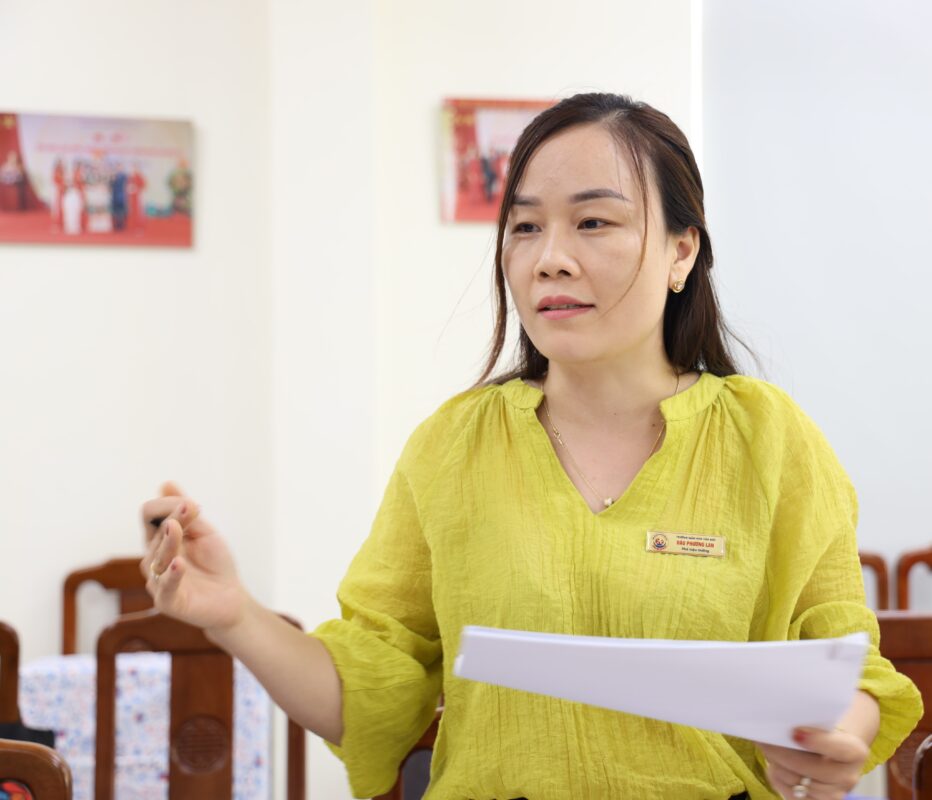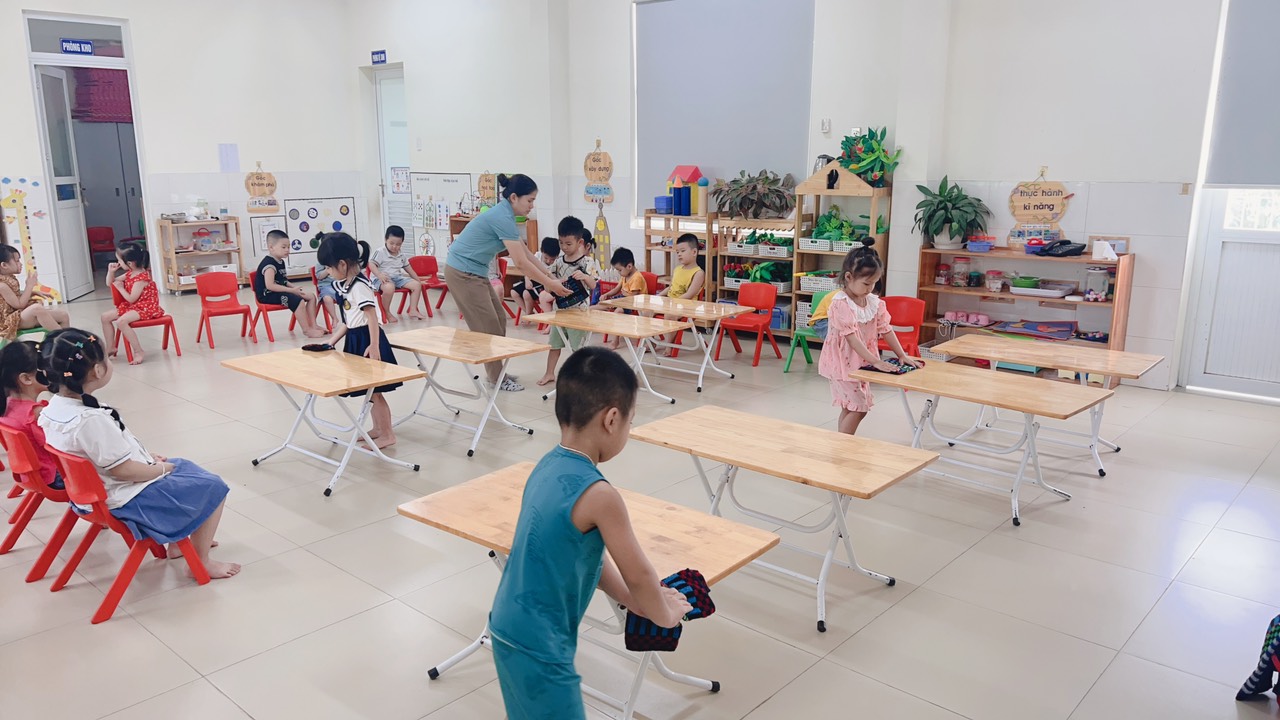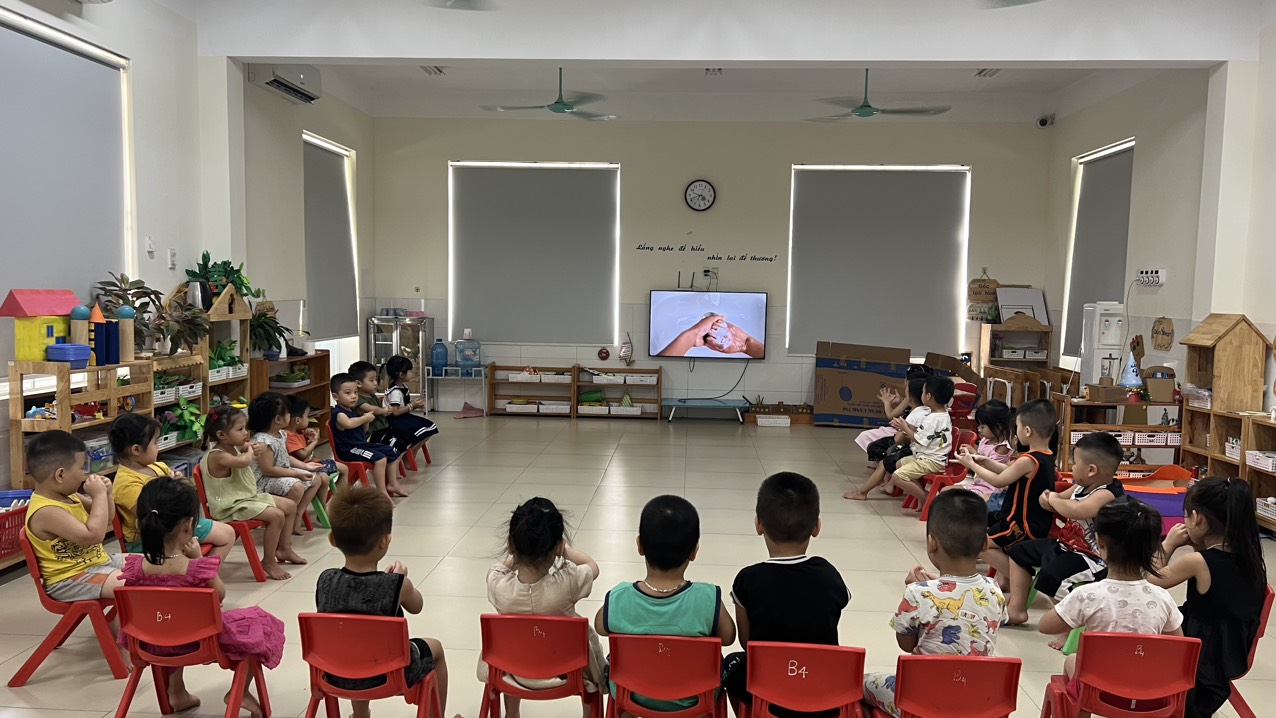A blog by Yen Phung and Phuong Dzung
In a normal evening, while Phuong was playing with her toys in the living room, her parents came back home after a long working day with a box of fresh guava.
When Phuong saw the box, her eyes sparkled with joy. “Mommy, can I wash them?” she asked eagerly.
Her mom was stunned. She looked at her husband. He was also speechless. They both turned to their parents, who were in the kitchen preparing dinner. They also heard Phuong’s request and came out to see what was going on. They saw their granddaughter standing with the box of guava in her arms, ready to wash them.
They couldn’t believe their eyes. Phuong was their only child, their only grandchild. They gave her everything she wanted, and they did everything for her. They even spoon-fed her sometimes, even though she was four years old and could eat by herself.

But that evening, something changed. Phuong did not eat the fruit right away but washed it herself first. Phuong followed the correct steps to ensure food safety. She smiled as she felt the water splash on her face and hands.
Phuong had participated in the food safety lessons that the Safe Food for Growth project (SAFEGRO) organized for 336 children (190 boys and 146 girls) in 11 classes at Van Duc Kindergarten. SAFEGRO is a project funded by Global Affairs Canada and implemented by Alinea International in collaboration with the University of Guelph and MARD, MOH, and MOIT of Viet Nam.
Over 10 days the children learned about the basic principles of food safety and common practices such as handwashing, separating and cleaning food, and how to arrange food in the fridge. Students’ parents were also encouraged to practice with them at home.
When Phuong asked about washing the guava, her mom’s phone notified a message of Phuong’s teacher: ‘Our class has learnt about washing fruits today. I would suggest that parents support them to practice at home’.
The output survey results with children who participated in the program show that more than 80% of children have the 4 basic principles of food hygiene and safety (washing, separating, cooking and cooling), an increase of 20% compared to the initial survey. More than 90% of children correctly practice basic hygiene steps to ensure food safety, such as washing hands, washing fruit, cleaning the dining table, arranging food and preserving food in the refrigerator, an increase of more than 20%. In addition, 22 teachers and nearly 70% of parents of 336 children who participated in the pilot program actively participated in the program and improved their knowledge of hygiene and food safety.
“Participating in the program and teaching the kids made me change my own behavior. I became more careful about storing food in the fridge properly and safely. These practices are very common, but I used to ignore them. Now I think they are very good to follow and share.” Thuy Dzung, Van Duc Kindergarten teacher, said.
In order to maintain the good results, the school board of management intends to integrate the food safety theme into the current curriculum. The school topics for October and November are family and selfcare, which match well with the food safety theme.

Ms. Dao Phuong Lan, Vice Principal of Van Duc Kindergarten, spoke at the meeting to evaluate the results of the implementation of the food safety education program.
The school board of management intends to integrate the food safety theme into the current curriculum.
On a larger scale, SAFEGRO plans to work with the Gia Lam district Bureau of education and training to apply the food safety education program in other schools in the district and, possibly, other schools in Hanoi. In the long run, SAFEGRO expects to work with the ministry of education and training (MOET) for the national application of food safety in kindergarten’s and, eventually, middle schools.
This food safety education program is a part of the gender responsive food safety community model being supported by SAFEGRO in Van Duc commune.
Brian G. Bedard, Director, Food Safety and Animal Health, Alinea International said: “Beside the kindergarten, SAFEGRO hopes to work with farmers, cooperatives, and local markets to engage with key value chain players and the entire community to raise awareness about food safety, change food safety behavior and promote food safety culture towards better public health outcomes”.
Phuong’s story of washing guava inspires the entire SAFEGRO team to hope that she and all children will practice food safety every day, contributing to the development of a robust food safety culture for a healthier Vietnam.
* The character’s name has been changed in accordance with the child protection policy.



